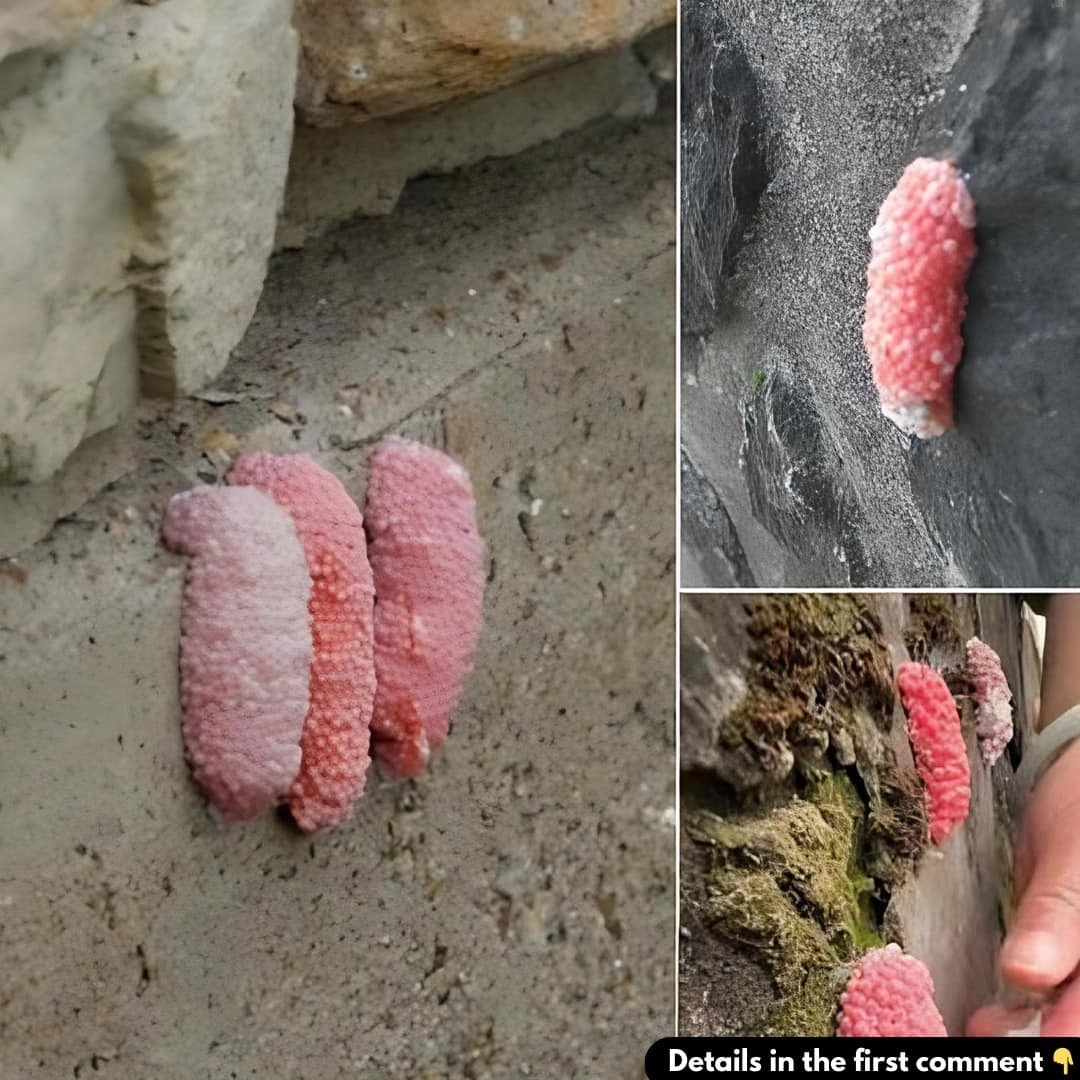
If you’ve come across groups of small, bright pink eggs in your garden, they might seem festive or harmless. But watch out—these pink eggs are actually from the invasive apple snail, a species that can seriously harm local ecosystems. These snails started in South America and have spread worldwide, causing trouble for plants, crops, and natural habitats wherever they go.
The Apple Snail: A Giant Among Freshwater Snails
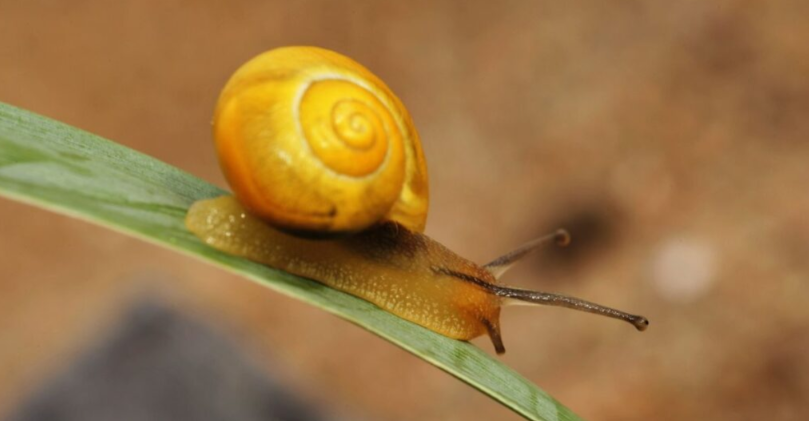
The apple snail is a freshwater mollusk that is much bigger than the snails you usually see in gardens. With shells reaching up to ten centimeters wide, these snails are impressive and a bit scary too. They thrive in wet places like ponds and lakes where they can easily spread out—especially in warmer areas.
Apple snails lay clusters of pink or orange eggs that are about 2 to 3 millimeters wide. These eggs often appear in groups of around four hundred to six hundred! This shows how quickly apple snails breed which makes them successful—and dangerous—invaders.
Why Are Apple Snails So Invasive?
Apple snails rank among the top one hundred most invasive species globally. They have an amazing ability to adapt and reproduce quickly thanks to climate change! Originally found only in warm areas of South America; now they’ve made their way into North America; Europe; and Asia where they’re well-established.
These snails not only fit into new environments but also take over them! Apple snails eat many types of plants. In Southeast Asia where they were introduced back in the ’80s; they’ve caused huge damage to rice fields leading to big losses for farmers. Their fast reproduction means they can easily outcompete local species for food which leads to less biodiversity.
Apple Snail Eggs: The Tell-Tale Signs of an Invasion
The clusters of pink eggs laid by apple snails are one clear sign they’re around! You usually find these eggs on leaves or branches near water so they have a better chance at surviving when hatching. The bright color warns birds and other predators since these eggs contain toxins making them less tasty!
When you see these egg clusters it’s important to act fast because each group could hatch hundreds of baby snails who will start causing damage right away! In places where apple snails have taken hold; local authorities often ask people to report any sightings so they can help control their spread.
Where Have Apple Snails Spread & What Damage Do They Cause?
Thanks to their adaptability; apple snails have moved far beyond their original homes in South America! They’ve set up populations across North America including states like Florida; Texas; and California as well as becoming pests in rice paddies throughout Asia while being spotted across Europe too—in countries like Spain & France!
In France back in twenty eighteen some egg clusters were found near Fréjus leading officials there into action but even then it was hard stopping them completely!
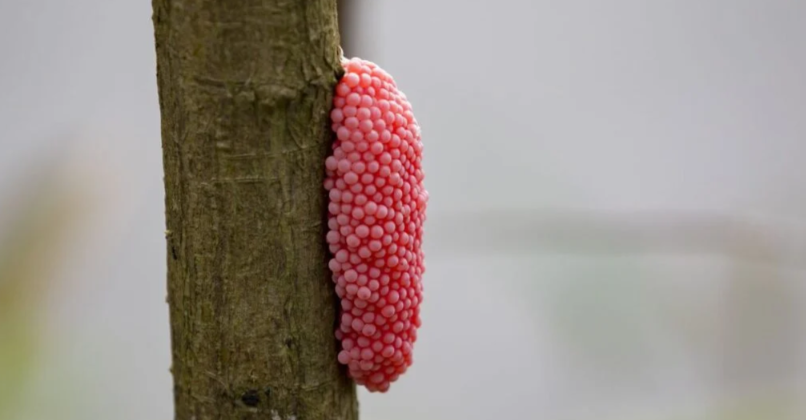
The harm caused by these pesky creatures is serious—they munch through tons of aquatic plants essential for healthy ecosystems providing habitat oxygen food etc.! By eating up those plants apple snaills throw off balance within local environments affecting everything from water quality down through fish populations too!! Farmers suffer major financial losses due because young shoots get destroyed!!
What Can Be Done To Control Apple Snail Populations?
Because apple snaills reproduce so rapidly controlling their numbers needs teamwork!! Many regions banned selling them as pets since aquarists would release them into nature after getting bored with keeping em’ alive!! But more actions must be taken if we want stop further spreading & lessen damages done!!
Here Are Some Strategies For Controlling Them:
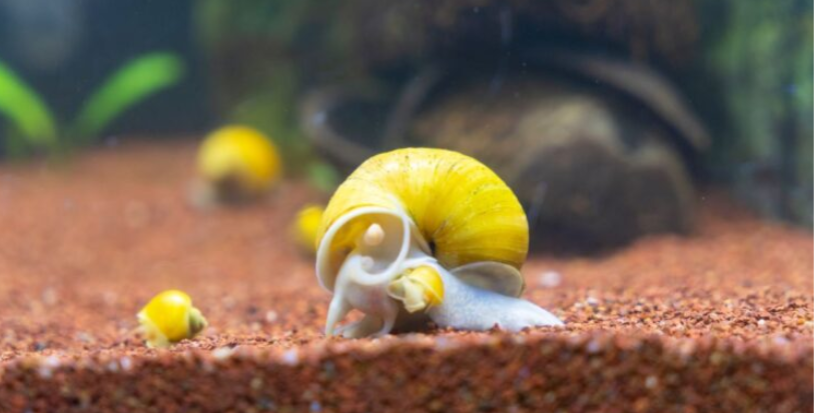
Reporting Sightings: Many countries set up hotlines/websites allowing folks report sightings either applesnail themselves or just those pesky little egg clumps early detection helps keep things under control!!
Manual Removal: Local authorities sometimes encourage people manually remove those annoying little egg clumps scraping em off surfaces disposing properly always wear gloves handling cause potential toxins exist!!!
Biological Controls: Researchers lookin’ at ways use natural predators parasites help manage population levels however still experimental stages monitored closely avoid unintended consequences ecological wise!!!
Public Awareness: Education campaigns raise awareness risks posed by invasives such as applesnail many don’t realize dangers until its already too late!!!
If you’re really into gardening seeing invaders take over might feel unsettling indeed!!! Applesnail could wipe out plant life especially if ponds/water features exist once established tough eliminate making acting quick vital upon spotting those tell-tale pink egg clusters!!!
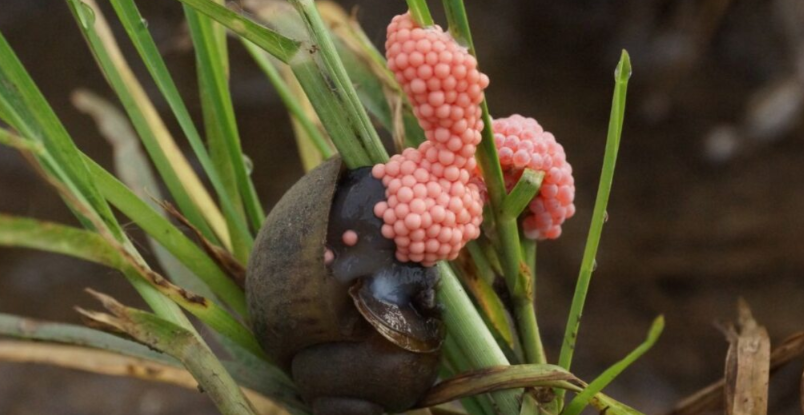
Besides looking bad this signals larger threat towards health surrounding ecosystem native plant species often decimated affecting entire food chains reporting/removing helps protect environment from further harm!!
Seeing pinks spots may shock ya recognizing warning signs invasive species lets us take swift effective actions against em’!!! Applesnail plus its nasty lil’eggs aren’t just nuisances—they threaten biodiversity agriculture natural ecosystems everywhere around globe!!!
By staying alert reporting sightings understanding risks involved we all play part curbing spreads protecting gardens/local environments remember—it’s our duty safeguard world’s ecosystems one cluster at time!!!!